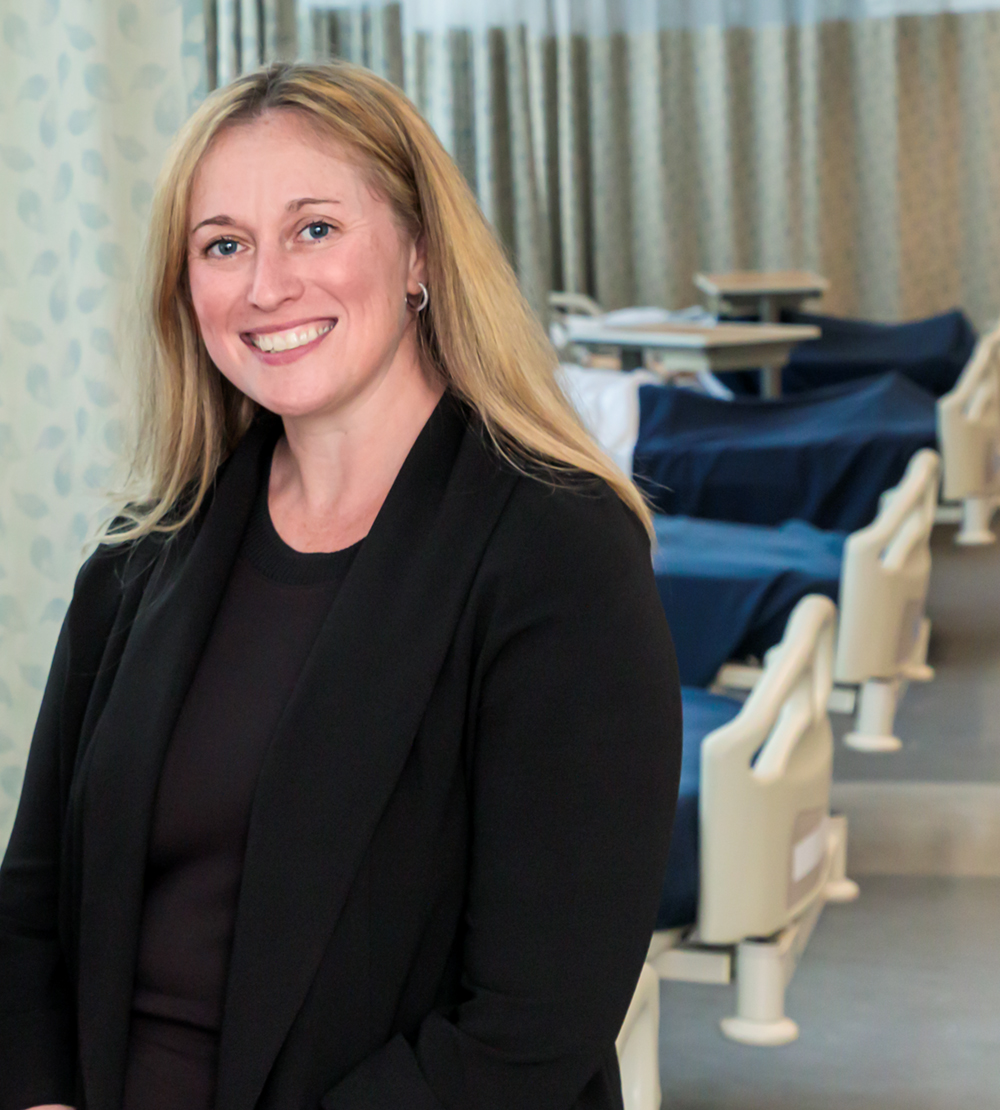When Jordana McMurray was on her night shifts as a pediatric respiratory nurse at the Hospital for Sick Children (SickKids) she noticed that her patients with cystic fibrosis (CF) seemed to really struggle with sleep.
Most children hospitalized with illness, sleep more than normal but McMurray observed that for kids with CF it was often the opposite, with frequent night-time wakes requiring nursing intervention to help kids with CF get back to sleep.
“It was a nagging question for me, why do kids with CF not sleep well, and when I found that despite sleep concerns being common there were no guidelines for assessing sleep in CF patients, I knew that I wanted my research to be focused on this topic,” says McMurray.
Deciding to pursue a PhD
That decision made over five years ago is now coming full circle with McMurray set to graduate with her PhD in Nursing from U of T’s Lawrence Bloomberg Faculty of Nursing this June. Her research focused on understanding the relationships between sleep and anxiety and depression symptoms in adolescents and young adults with CF in comparison to adolescents and young adults without chronic illness.
Navigating a PhD degree and conducting a research study can be challenging at the best times, but for McMurray there were the added pressures of completing research during a pandemic and being a mom to young children.
“I have had a lot of people ask me what it is like to be a mom and a student. I am honest when I say it was a big challenge, especially during COVID, I had to recognize that my path was not going to look the same as other students,” says McMurray.
At the height of COVID, research approval processes considerably slowed leaving McMurray a bit stuck. She took that challenge and turned it into a new opportunity to brush up on her skillset, accessing online courses and virtual training in sleep physiology and in sleep wearable technologies from educational institutions that would have previously been inaccessible. It also gave her an opportunity to engage with the community her research sought to help by becoming a volunteer with CF Canada.

Using technology to measure sleep
Wearable technology played an important role in McMurray’s study. Participants wore an actigraph – similar to a watch that contains an accelerometer – to record their sleep for seven days and seven nights. Participants also completed questionnaires to measure sleep and symptoms of anxiety and depression and kept a sleep diary for the duration of the study. Some participants with CF also participated in a virtual interview to discuss their sleep experiences.
Just prior to McMurray’s study, a new modulator therapy was approved for individuals with CF with eligible mutations. This medication significantly reduces symptoms in the CF population, and 82 per cent of the participants enrolled in McMurray’s study were on this new therapy. McMurray’s study found that adolescents and young adults with CF had comparable sleep, anxiety, and depression outcomes as their healthy peers which contrasted with previous research conducted before the availability of this new medication. It may be that the differences found in McMurray’s study are attributable to this new treatment.
Findings show people with CF have unique sleep challenges
However, qualitative data collected via interview revealed that young people with CF still have unique sleep challenges. Participants described CF symptoms like coughing and abdominal pain as disruptive to sleep. Treatments for CF, including physical therapy to assist with airway drainage of thick mucus, were described as infringing on bedtime and necessitating earlier waking, reducing time available for sleep. While other treatments improved respiratory symptoms, they were perceived to have a stimulating effect making it harder to fall asleep. Participants also discussed how anxieties, both related and not related to CF, and changes in health status, like developing a new infection or having new onset or worsening pain also interfered with their sleep.
“For me this was an important finding because young people with CF experience very frequent changes in symptoms and in health status, and therefore the consequences of cumulative sleep disruption may be quite significant” says McMurray.
Now McMurray is taking her interest in sleep and its association with mental health further. As a post-doctoral researcher, she is currently working on a randomized controlled trial that will test a sleep promoting mobile phone app to see if it can help adolescents get more weeknight sleep and whether more sleep effects mental health and well-being. Created by Professor Robyn Stremler, Dean of the Lawrence Bloomberg Faculty of Nursing, the app works with a wearable sleep tracker and uses theory-based behavioural strategies and real and virtual rewards to target earlier bedtimes.
“It’s an exciting time to be studying sleep and mental health in young people. As research advances, we continue to better understand how these two vital aspects of wellbeing are deeply connected, which opens the door for early interventions,” says McMurray.
